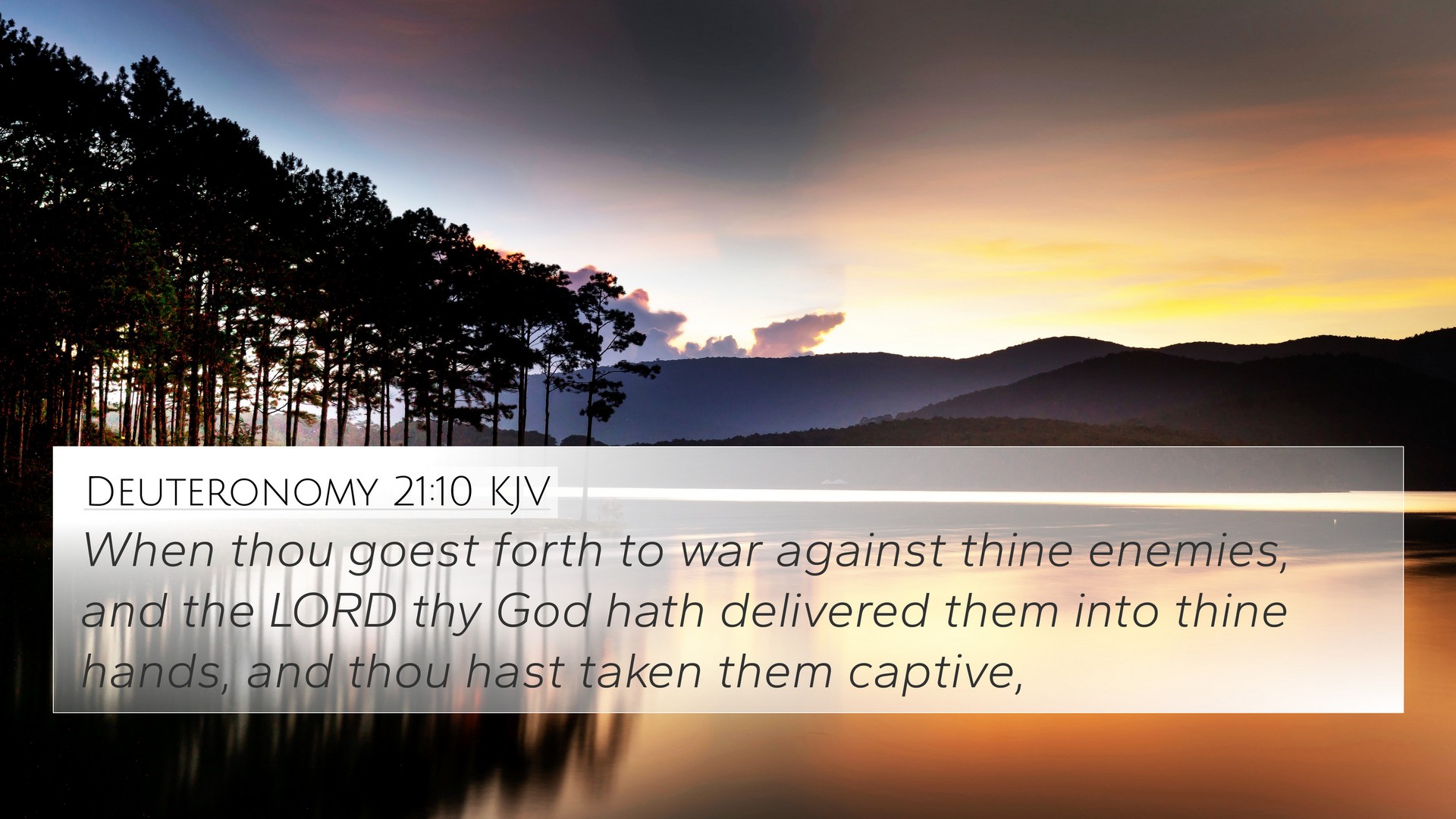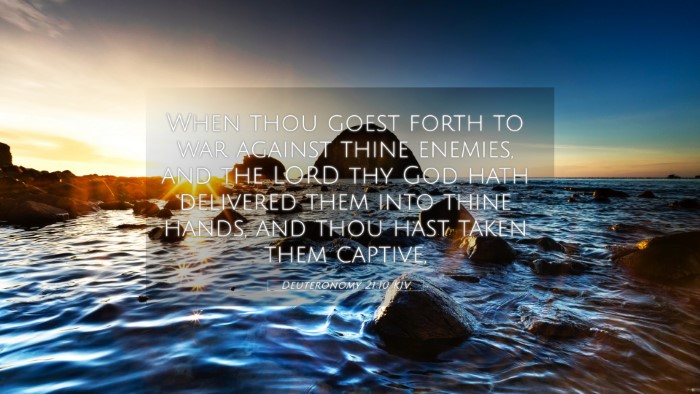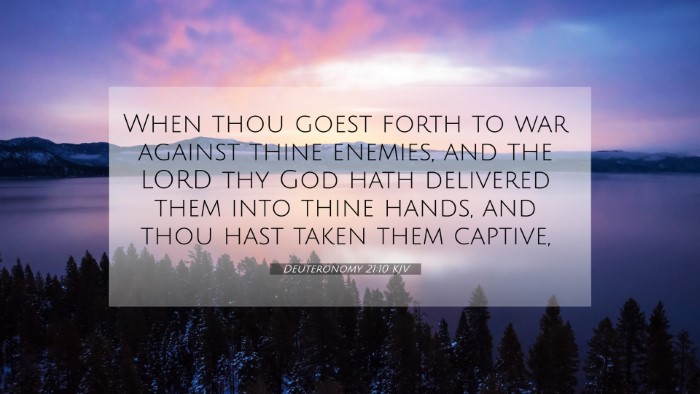Understanding Deuteronomy 21:10
Deuteronomy 21:10 states, "When thou goest forth to war against thine enemies, and the LORD thy God hath delivered them into thine hands, and thou hast taken them captive." This verse sets the stage for the laws governing Israel's conduct in warfare, emphasizing the need for divine guidance and moral clarity even in the heat of battle.
Summary of Insights
Commentators such as Matthew Henry, Albert Barnes, and Adam Clarke provide rich insights into the implications of this verse. The overall interpretation revolves around God's sovereignty in granting victory and the responsibilities that come with that victory.
Divine Sovereignty and Human Responsibility
Matthew Henry observes that the act of going to war is not merely a human endeavor but one that should involve seeking God's will. He stresses the importance of recognizing God's overarching authority in the affairs of men, particularly in warfare. Albert Barnes adds that the Israelites are required to conduct themselves with righteousness, even when engaging in conflict, indicating that their victory must align with God's commandments.
Moral Considerations in Warfare
Adam Clarke highlights that this verse lays the groundwork for the ethical treatment of captives. The concept of righteousness must permeate even military conquests, pointing out that God does not endorse senseless violence but rather expects His people to act justly. Clarke emphasizes that the context of warfare for the Israelites was to be governed by God's laws, which advocate for humane treatment of the defeated.
Cross-References
Several other Bible verses provide valuable connections to Deuteronomy 21:10:
- Exodus 15:3: "The LORD is a man of war: the LORD is his name." - Emphasizing God's involvement in battles.
- Joshua 1:9: "Have not I commanded thee? Be strong and of a good courage; be not afraid, neither be thou dismayed: for the LORD thy God is with thee whithersoever thou goest." - Again, reinforcing divine support in warfare.
- Psalm 44:3: "For they got not the land in possession by their own sword, neither did their own arm save them: but thy right hand, and thine arm, and the light of thy countenance, because thou hast a favor unto them." - Acknowledging God's role in securing victory.
- 2 Chronicles 20:15: "Thus saith the LORD unto you, Be not afraid nor dismayed by reason of this great multitude; for the battle is not yours, but God's." - Highlighting reliance on God in the context of war.
- Romans 8:31: "What shall we then say to these things? If God be for us, who can be against us?" - Relating the spiritual battle context to earthly conflicts.
- 1 Timothy 1:18: "This charge I commit unto thee, son Timothy, according to the prophecies which went before on thee, that thou by them mightest war a good warfare." - Advising on maintaining integrity even in figurative warfare.
- Ephesians 6:12: "For we wrestle not against flesh and blood, but against principalities, against powers, against the rulers of the darkness of this world, against spiritual wickedness in high places." - Connecting physical warfare with spiritual understanding.
Thematic Connections
In exploring the thematic connections between Deuteronomy 21:10 and other scriptures, we see a narrative that runs throughout both the Old and New Testament:
- God's guidance in conflict: From the Israelites' battles to spiritual warfare as outlined in Ephesians.
- Moral accountability: Reflecting on how both the commands in Deuteronomy and teachings in the New Testament hold believers to a higher ethical standard.
- Victory through faith: Emphasizing that reliance on God is paramount, whether in a physical battle or the spiritual struggles of life.
Conclusion
Deuteronomy 21:10 encapsulates important principles that not only direct the conduct of warfare in an ancient context but also serve as perpetual guides for moral conduct and reliance on God throughout the ages. The interconnectedness of biblical texts provides a rich tapestry for understanding how God's will manifests in various circumstances, making it crucial to analyze and study scripture in a cross-referenced manner.
Exploring Cross-References
Utilizing tools for Bible cross-referencing, such as a Bible concordance or a Bible cross-reference guide, can greatly enhance one's understanding of these connections. Engaging in cross-reference Bible study allows deeper insights into the themes, connecting verses, and revealing the richness of scripture.




